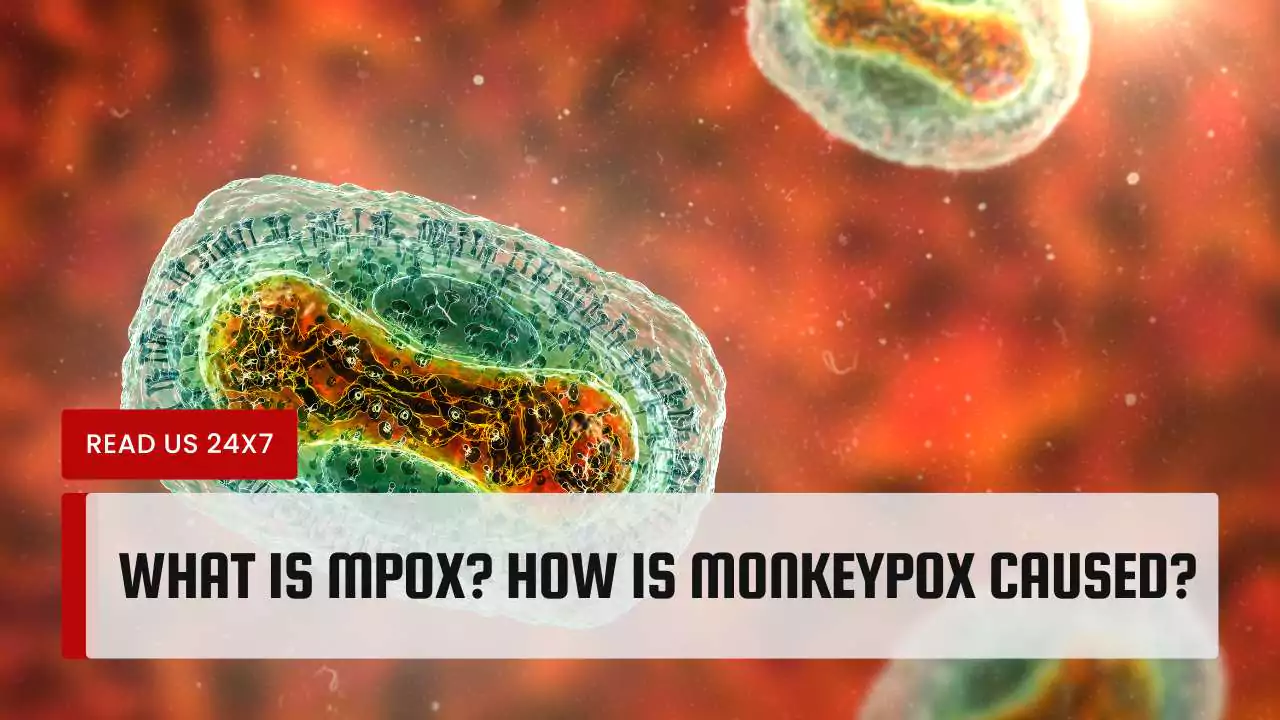Mpox, commonly known as monkeypox, is a viral infection caused by the monkeypox virus. It primarily affects humans and some animals, leading to a range of symptoms from mild to severe. The virus is related to the smallpox virus but is less deadly. Understanding monkeypox involves looking into its origins, how it spreads, and the symptoms it causes.
What is Mpox or Monkeypox?
Definition and Origins
Monkeypox is a zoonotic disease, meaning it can spread from animals to humans. The virus was first identified in monkeys in a Danish laboratory in 1958, hence the name “monkeypox.” However, the virus is more commonly found in rodents than in monkeys. The first time a human got infected with the virus was officially recorded in 1970 in the Democratic Republic of the Congo.
Types of the Monkeypox Virus
There are two main types of the monkeypox virus: the West African strain and the Central African (Congo Basin) strain. The West African strain is less severe, with a lower fatality rate, while the Central African strain is more dangerous and can spread more easily from person to person.
Causes and Transmission of Monkeypox
Infection with the Monkeypox Virus
Monkeypox arises as a direct result of the monkeypox virus, a member of the Orthopoxvirus genus. Notably, this genus encompasses the same family of viruses as smallpox. Infection ensues when the virus gains entry into the body, typically through compromised skin, the respiratory tract, or mucous membranes.
Modes of Transmission
The virus can be transmitted from animals to humans through direct contact with the blood, bodily fluids, or skin lesions of infected animals. Human-to-human transmission occurs through close contact with respiratory droplets, skin lesions, or contaminated materials like bedding. It can also spread through prolonged face-to-face interaction or intimate physical contact.
Symptoms and Treatment of Monkeypox
Incubation Period and Early Symptoms
The incubation period for monkeypox typically ranges from 6 to 13 days, with a potential variation of 5 to 21 days. Initial symptoms commonly include elevated body temperature, headache, muscular discomfort, and a general sense of fatigue. As the disease progresses, a rash frequently manifests, often commencing on the facial region and gradually spreading to other areas of the body. The rash undergoes various stages, evolving from flat lesions to fluid-filled blisters before transitioning to a crusted state and ultimately detaching from the skin.
Available Treatments
Monkeypox has no particular therapy. Vaccinations against smallpox, antivirals, and vaccinia immune globulin (VIG) can, nevertheless, be employed to contain outbreaks. It’s crucial to provide supportive care, such as managing temperature and keeping hydrated. Antiviral medications such as tecovirimat may be used in extreme situations.
Is There a Vaccine Against Monkeypox?
Yes, there are vaccines available that can protect against monkeypox. The smallpox vaccine is about 85% effective in preventing monkeypox. Recently, a newer vaccine specifically developed for monkeypox, called JYNNEOS (also known as Imvamune or Imvanex), has been approved in some countries.
Who is at Risk of Mpox?
People living in or traveling to regions where the monkeypox virus is endemic, such as Central and West Africa, are at higher risk. Healthcare workers and family members caring for infected individuals are also at increased risk. Additionally, those who consume or handle wild animals, particularly rodents, in affected areas are more likely to contract the virus.
Prevention and Global Impact
Importance of Prevention
Preventing monkeypox involves reducing human contact with infected animals and minimizing person-to-person transmission. Practices such as avoiding the consumption of bushmeat, wearing protective clothing when handling animals, and maintaining good hygiene can help prevent the spread of the virus. Isolating infected individuals and using personal protective equipment (PPE) are crucial steps in controlling outbreaks.
Recent Outbreaks and Impact on Public Health
Recent outbreaks of monkeypox have raised concerns globally. In 2022, several countries reported cases outside of Africa, leading to increased surveillance and public health efforts. The outbreaks highlighted the importance of early detection, vaccination, and public awareness in controlling the spread of the virus. Monkeypox outbreaks can strain healthcare systems, particularly in regions with limited resources, making prevention and preparedness essential.
Future Outlook
Research and Development for Vaccines and Treatments
Ongoing research aims to improve vaccines and develop specific treatments for monkeypox. Scientists are studying the virus to better understand its transmission, mutation, and impact on human health. The development of more effective vaccines and antiviral therapies is a priority, especially in light of recent outbreaks.
Why WHO Declared Mpox as a Global Health Emergency?
The World Health Organization (WHO) declared monkeypox a global health emergency due to its rapid spread across multiple countries and the potential for widespread outbreaks. The declaration aims to mobilize resources, enhance surveillance, and coordinate international efforts to prevent further transmission. It also emphasizes the need for global cooperation in research, vaccine distribution, and public health education.
How Can I Protect Myself and Others Against Mpox?
Protecting yourself from monkeypox involves avoiding close contact with infected individuals or animals. Practice good hygiene, such as frequent handwashing with soap and water, and use of hand sanitizer. If you are in an area where monkeypox is present, consider vaccination, especially if you are at high risk. Avoiding the consumption of bushmeat and properly cooking all animal products can also reduce the risk of infection.
I’ve Had Mpox in the Past, Can I Get Infected Again?
Having monkeypox once typically provides some immunity against future infections, but it is not guaranteed. The extent and duration of immunity after infection are still being studied. It is important to continue practicing preventive measures, even if you have had monkeypox before, to reduce the risk of reinfection.


